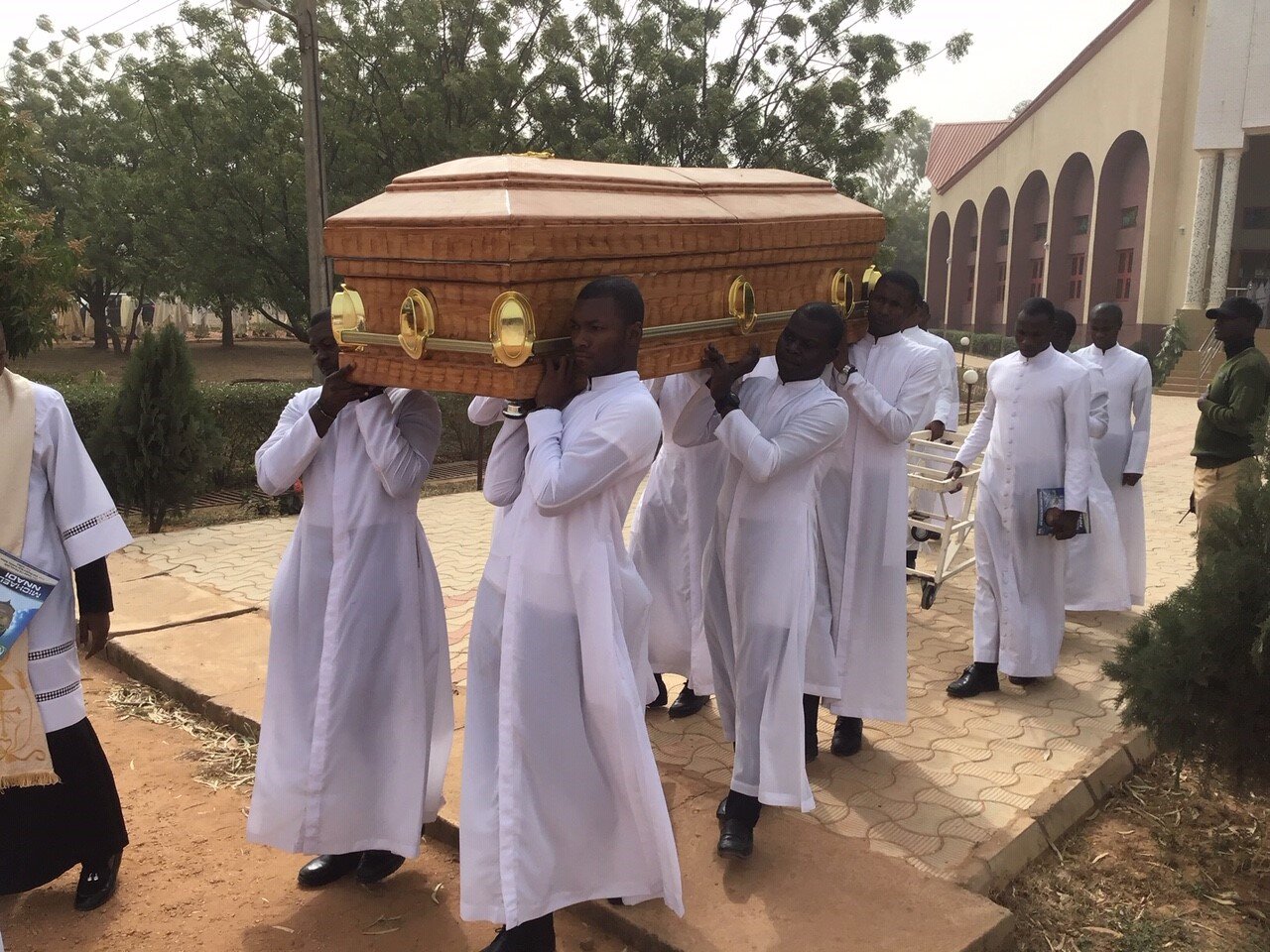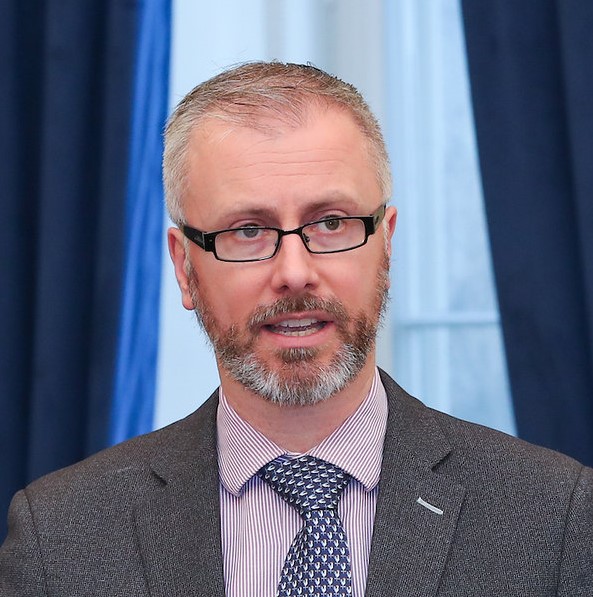
The US Supreme Court will hear an appeal against the Biden administration’s attempt to override an Idaho law and force ER doctors to perform abortions.
The Court also granted an emergency stay allowing Idaho’s life-saving law to remain in effect while SCOTUS decides the case.
In 2020, the state of Idaho enacted a law that puts the lives of women and their unborn children first, preventing physicians from ending an unborn child’s life unless doing so is critical to save the life of the mother.
In 2022, the Biden administration sued Idaho claiming it can impose a federal law to force ER doctors to perform abortions.
International human rights law firm, Alliance Defending Freedom, says the White House is engaged in an unlawful abuse of power.
“The government has no business forcing doctors to harm their patients or violate their duty to provide life-saving care to all, including unborn children,” said ADF’s Erin Hawley.

A Nigerian priest based in Ireland has warned that Christians in Nigeria have been “left alone to survive” by the international community, following attacks over Christmas that left almost 200 dead and hundreds more injured.
The rampage on 20 Christian villages in Plateau state started on Saturday, December 23 and continued into Christmas day.
Fr Innocent Sunu CC in Ss Peter and Paul parish in Athlone comes from the north-east of Nigeria where Christian persecution by Islamist militants has continued for decades.
Speaking to The Irish Catholic, Fr Sunu – who has been the victim of Islamist attacks but managed to escape uninjured – said: “What we go through in Nigeria is not something new and the mainstream media does not report it, sometimes we try and come out and say what has been happening but no one seems concerned. Everybody reads what happens in Nigeria as if it is just passing news.
“The international community has not put any pressure on the government, or on enemies of Christianity to make them know what they are doing to us is really barbaric. I feel we have been neglected, ignored, we have been left alone to survive by ourselves,” he said.

A Chinese bishop has reportedly been arrested after objecting to decisions made by a communist-sponsored leader in his diocese without his approval.
Bishop Peter Shao Zhumin of Wenzhou last week, according to Asia News.
The 61-year-old bishop is not recognised by the Chinese government, because he has refused to register with the Chinese Patriotic Catholic Association (CPCA), the Communist-party controlled church.
The Chinese government has instead named Fr. Ma Xianshi, a member of the CPCA, as the head of the diocese.
Shao has been routinely detained around holidays, in order to block him from celebrating Mass on major liturgical feasts.
In this case, however, he was taken into custody over Christmas, but arrested a week later, after he penned a letter objecting to changes in the diocese made by Fr. Ma while he was away.
His current whereabouts are unknown.

The number of students attending multi-denominational schools at post-primary level exceeded the numbers enrolled in Catholic schools for the first time during the current academic year illustrating the amount of school choice at this level.
Figures from the Department of Education showed there were 201,102 pupils attending multi-denominational schools across Ireland in September, representing 48.3pc of the total.
At the same time, there were 199,292 students in Catholic schools, accounting for 47.8pc of all enrolments at secondary level.
Multi-denominational schools in Ireland outnumbered Catholic secondary schools for the first time in 2018 but until now, enrolments in Catholic schools had still remained higher.
The change was driven by a 4pc increase in enrolments over the past 12 months in multi-denominational schools, with pupil numbers up 7,747.
In contrast, the growth in student numbers in Catholic schools was smaller, at 0.8pc, with a net increase of just 1,519.

Dún Laoghaire-Rathdown County Council is not willing to host secular funeral ceremonies as they are not invitation-only events and numbers generally cannot be restricted.
The council also said carrying a casket up the stairs to the assembly rooms – which are located on the first floor amid ornate wood panelling and vaulted ceilings – could be a health-and-safety issue.
In a post on X, she said the latest census shows that fourteen per cent of Irish people have no religion, with Dun Laoghaire having the highest proportion of all with 24 per cent.
“As one of those atheists, I personally found when organising my own secular wedding, that I faced some additional hurdles compared with those getting married in one faith or with the humanist society”, she wrote.
She believes the difficulties cited could be overcome, by, for instance, an invite-only format.
Deputy Ward agreed saying a solution would be “to facilitate memorial services now, even if by invitation only (or services where there isn’t a body, for whatever reason)”, adding, “where there’s a will, there’s a way”.

A “disturbing” rise in sexual assaults of teenage girls by boys of similar age, with attacks becoming increasingly violent, has been reported by a Dublin service for victims of child abuse.
Referrals for peer-to-peer sexual abuse have increased by almost a third in four years at the Alders Unit in Dublin.
Most referrals were of adolescent girls abused by boys of similar age who were known to them, with reported abuses ranging from inappropriate contact to rape.
Another worrying development flagged by the Alders Unit is a marked escalation in the violence used.
The cause of the increase in teenage sexual violence against young women has been linked to the proliferation of violent adult pornography online and on social media, both here and internationally.

People may soon be required to upload their passport details with a selfie to websites if they want to view pornography as part of efforts to help protect children from harmful content online.
The media regulator has said that part of the new Online Safety Code will be telling digital platforms that they must use an effective form of age verification.
Coimisiún na Meán executive chairperson Jeremy Godfrey told the Irish Examiner his office will not be “absolutely prescriptive” on how age verification should work, but a requirement for a person to show their passport and a selfie to verify identity would be the “gold standard”.
The Online Safety Code is out for public consultation until the end of this month. It outlines measures that video-sharing platforms will have to implement to keep users, especially children, safe from harmful content.
Under this code, Ireland’s Coimisiún na Meán will have responsibility for enforcing these measures on all video sharing platforms that have their European headquarters in Ireland.

A mother who gave birth to two babies from different mothers and then had to give them up has won a payout from the clinic in California that mixed up the embryos.
The Asian-American couple who were only ever identified by their initials have settled for an undisclosed sum with the Cha Fertility Clinic in Southern California, according to reports.
In 2018, the couple, identified as YZ and AP, from Flushing, New York, travelled to California and paid $100,000 for fertility treatment. It resulted in eight embryos and a pregnancy for AP, who was told she was having twin girls.
When she gave birth, she did so to two Caucasian boys rather than two girls with Asian features. Subsequent investigations revealed that in an “unimaginable mishap” the clinic had implanted two male embryos from two different families into AP, according to a lawsuit they filed.
A few weeks later, the couple were forced to give up the baby boys. Their lawsuit said they had suffered “permanent emotional injuries from which they will not recover”.

The Government is considering legislative changes to pressure religious bodies to contribute to a redress scheme for past residents of mother and baby homes, the Minister for Equality has said. Such a proposal could clash with religious freedom and property rights in the Constitution.
Roderic O’Gorman told the Irish Times that the Government will “consider its options” if religious congregations do not contribute adequately towards the costs in his opinion.
“We will have to look and see if we get meaningful offers of contributions. And if we don’t, we’ll have to consider what options are available,” he said. “I know in some countries legislative changes were introduced with a view to putting pressure on institutions. But I don’t want to prejudge the outcome of these negotiations.”
No examples were cited in the interview’s report.
The Minister said he expects applications from more than 30,000 people, including many now living overseas, adding that an international information campaign would begin once the scheme opens.
Mother and baby homes existed in many countries with only a small minority in the English-speaking world being run by Catholic organisations. None have reparation schemes specifically for mother and baby homes.

A priest in Nicaragua was arrested following Mass on New Year’s Eve.
At least 14 priests, two seminarians and a Bishop have been arrested in recent days in the country ruled by left-wing dictator Daniel Ortega.
Fr. Gustavo Sandino, the pastor of Our Lady of Sorrows, was arrested on 31 December following Sunday Mass in the Diocese of Jinotega, Nicaragua.
In Managua, Fr. Fernando Téllez Báez, pastor of Our Lady of the Americas, was taken in the early hours a day earlier, and Fr. Jader Hernández, pastor of the Mother of the Divine Shepherd, the evening of 30 December.
Earlier in the year, Bishop Rolando José Álvarez Lagos of Matagalpa was sentenced to 26 years in prison without due process.
Representatives of the United Nations High Commissioner for Human Rights said that Nicaragua is moving “increasingly” away from the rule of law and “fundamental freedoms” by persecuting “political and indigenous leaders, members of the Catholic Church, activists, and journalists” with “repeated cases of arbitrary detention.”